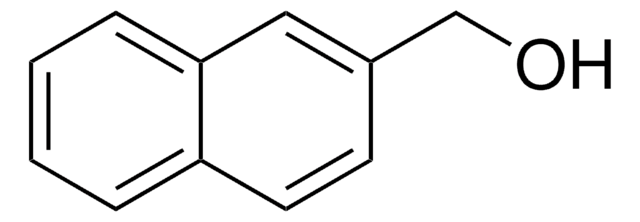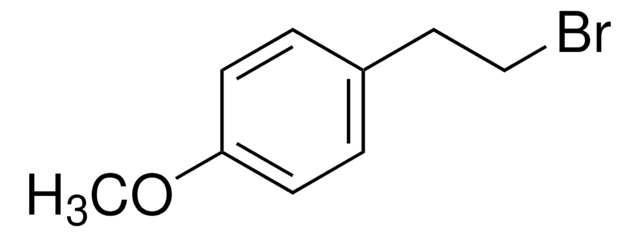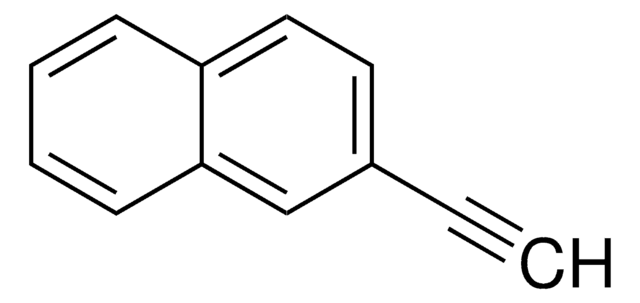All Photos(1)
About This Item
Empirical Formula (Hill Notation):
C12H11Br
CAS Number:
Molecular Weight:
235.12
MDL number:
UNSPSC Code:
12352100
PubChem Substance ID:
NACRES:
NA.22
Recommended Products
Assay
97%
refractive index
n20/D 1.638 (lit.)
bp
237-238 °C/760 mmHg (lit.)
density
1.646 g/mL at 25 °C (lit.)
functional group
bromo
SMILES string
BrCCc1cccc2ccccc12
InChI
1S/C12H11Br/c13-9-8-11-6-3-5-10-4-1-2-7-12(10)11/h1-7H,8-9H2
InChI key
GPHCPUFIWQJZOI-UHFFFAOYSA-N
Looking for similar products? Visit Product Comparison Guide
General description
1-(2-Bromoethyl)naphthalene can be obtained from the reaction between 1-(2-hydroxyethyl)naphthalene and phosphorus tribromide.
Application
1-(2-Bromoethyl)naphthalene may be used to synthesize 2-iodo-1-[2-(1-naphthyl)ethyl]-1H-benzimidazole.
Signal Word
Warning
Hazard Statements
Precautionary Statements
Hazard Classifications
Eye Irrit. 2 - Skin Irrit. 2 - STOT SE 3
Target Organs
Respiratory system
Storage Class Code
10 - Combustible liquids
WGK
WGK 3
Flash Point(F)
230.0 °F - closed cup
Flash Point(C)
110 °C - closed cup
Personal Protective Equipment
dust mask type N95 (US), Eyeshields, Gloves
Choose from one of the most recent versions:
Already Own This Product?
Find documentation for the products that you have recently purchased in the Document Library.
Potentially carcinogenic cyclopenta [a] phenanthrenes. Part IV. Synthesis of 17-ketones by the Stobbe condensation.
Coombs MM, et al.
J. Chem. Soc. Sect. C, 9, 1266-1271 (1970)
Access to aromatic ring-fused benzimidazoles using photochemical substitutions of the benzimidazol-2-yl radical.
O'Connell JM, et al.
Synthesis, 44(12), 3371-3377 (2012)
Our team of scientists has experience in all areas of research including Life Science, Material Science, Chemical Synthesis, Chromatography, Analytical and many others.
Contact Technical Service









